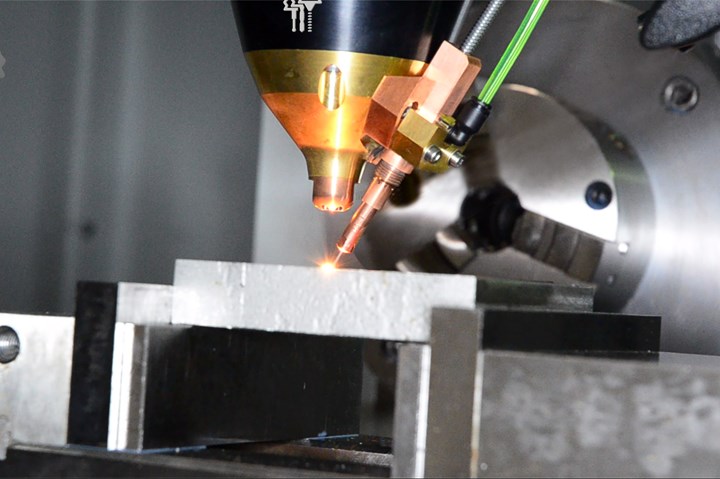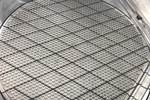Hybrid Manufacturing Technologies Takes Lead Involvement in Novel Compact Wire-Fed AM Project
InnovateUK research project to demonstrate advantages of the HMT interchangeable head over subtractive manufacturing and DED techniques.

Photo Credit: Hybrid Manufacturing Technologies.
Hybrid Manufacturing Technologies (HMT, McKinney, Texas) has announced its lead involvement in an InnovateUK research project entitled “Fast-track development of a novel compact wire-feed system for Laser Additive Manufacturing” (FastWireAM). This project includes collaboration with TWI (Cambridge, U.K.), a company that provides engineering consultancy, and designer and manufacturer of superconductive wires, Epoch Wires (Cambridge). The project aims to accelerate the market uptake of HMT’s wire-fed AM solution in conjunction with novel-alloy wire feedstock produced by Epoch Wires.
The main objectives of this project are to demonstrate the advantages of the HMT interchangeable head using wire feedstock over subtractive manufacturing and current state-of-the-art wire Directed Energy Deposition (DED) techniques, as well as the added value of using Epoch Wire’s powder-cored wire feedstock. This will be validated through manufacture of select industrial use-case components.
The new system will be housed at TWI’s Yorkshire, U.K., facility, where the new wire-feed system will be integrated with the company’s KUKA robot cell. TWI will lead tasks relating to process optimization and performance mapping of the system for demonstrator production and third-party validation of its performance. The FastWireAM project has received funding with thanks from InnovateUK under grant agreement No. 81046.
Related Content
-
How to Use Thermal Management to Improve Mold Cooling
A review of common mold cooling issues and possible solutions, including 3D printing applications.
-
A 3D Printing Retrospective
A personal review of the evolution of 3D printing in moldmaking throughout the past 25 years.
-
In "Hybrid" FIM Process, 3D Printing Complements Injection Molding
Alpine Advanced Materials used a desktop 3D printer and the freeform injection molding process to reduce prototype tooling production time and cost for its customers.








.jpg;maxWidth=300;quality=90)



